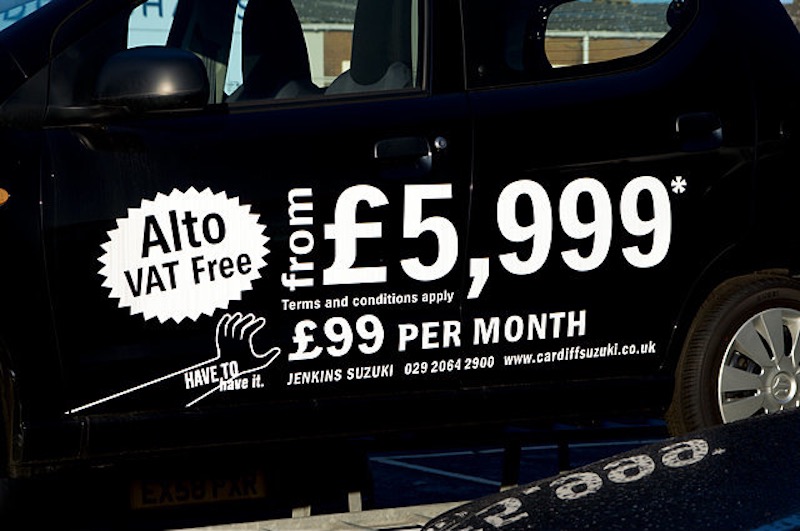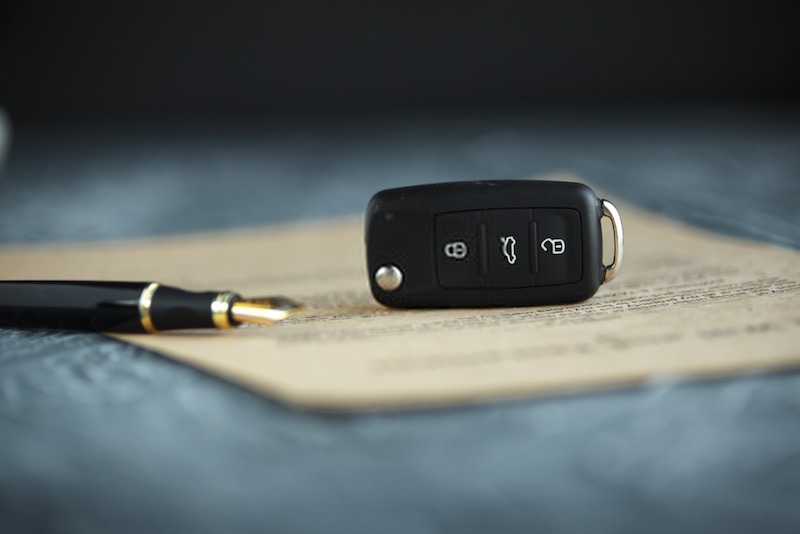Contents
What is the definition of Car Hire Purchase Financing?
A hire purchase or HP agreement is one of the most popular ways of affording a brand new car before Personal Contract Purchase, or PCP agreements came into the picture. Today it is still a popular option.
The definition of hire purchase agreements is that you enter into a payment plan with monthly instalments. Basically you are hiring the car while you pay for it
While you pay for the car each month, you have full use of it each month. The difference is that you have the choice to buy the vehicle once the contract comes to an end.
How Does a Car Hire Purchase (HP) Agreement Work?

The finance works by taking the current cost of the car minus the deposit you paid. The deposit you put down is usually around 10% of the present value of the vehicle. Depending on how much you can afford to pay each month, you’ll pay off the rest of the value of the car set out in the agreement over a period of one to five years. These are fixed monthly payments that won’t fluctuate throughout the contract, and this number has to be decided upon before you sign the agreement.
The amount you take out on this kind of finance is subject to interest the same as any other type of finance would be. HP interest rates can be anywhere from 4 to 8%. There are HP deals that have a 0% interest rate, but you have to be prepared to pay a hefty deposit – usually around 50% of the total amount.
You won’t own the car outright at the end of an HP agreement unless you make the final payment. Once you have paid all of your monthly payments, there is an option to purchase fee. If you choose to pay this, then you legally become the legal owner of that car.
Advantages of hire purchase agreements
- You can keep and drive the car while you make your monthly payments, so you don’t have to pay out a considerable amount of money upfront to own the vehicle outright.
- There is a fee at the end of the agreement that you have to pay if you would like to own the vehicle legally. This is much less money (usually around £100 to £200) than it would be if you were in a PCP deal and had to pay a balloon payment to own the car.
- If you know you want to own the car at the end of the deal, an HP agreement makes it a lot easier to afford the vehicle by paying it off in monthly instalments.
- You won’t have any annual mileage limits with an HP deal like you would get if you entered into a PCP agreement. However, with a Hire Purchase contract, you can drive as many miles that you like without having to worry about any of the fees for excess mileage.
- The debt and finance you take out as part of the agreement are all secured against the vehicle itself. It means that if you don’t have the best credit rating, you can still be in with a chance of being accepted onto an HP deal than if you take out a personal loan to afford a car.
Disadvantages of hire purchase agreements
- You don’t have legal ownership of the car until you make the final payment. This means you also don’t have any right to sell or trade the vehicle either. If you do try to sell the car, the finance company may even take action against you to pay off any outstanding balance you owe on the vehicle.
- Car companies favour PCP’s more than they do an HP agreement. Because of this favouritism, these companies are much more likely to offer up a deposit contribution that takes around £1500 off the total cost of a car if you choose a PCP contract. Another thing they do with PCP deals is to offer up lower interest rates. It’s so important to check what finance deal will work out cheaper overall by looking at all of your options, but in most cases, the PCP will be the more economical choice, especially if you’re not planning to keep the car at the end of the finance.
- With an HP agreement, you finance the total cost of the car. With PCP’s you only pay for the depreciation in the value, meaning that HP deal monthly payments are higher.
- The debt is completely secured against the car. If you don’t manage to make all of your monthly payments, the finance company can legally come and repossess the car as they own the vehicle until you make all of the payments.
Getting The Best HP Finance Deal

An HP finance agreement is usually entered into with a finance company that works with a car maker or dealer. Going to a showroom and picking out the car you want will often end up in you entering into one of these deals. However, different companies offer various forms of finance, such as online brokers. It’s so important to compare quotes from the dealerships to quotes you get from brokers or online to see which one is the cheapest option for you.
Here are some more top tips on getting the best HP deal:
- Do some APR research. Knowing and researching what the APR will be on the loan before going to the dealer will help you understand whether this is a good deal or not.
- Look at the overall cost. It’s tempting to take a low monthly repayment into account to decide that this is the deal for you. But you have to look at the total cost. Paying off a higher repayment each month for less time will mean you accrue less interest on the loan, which could result in lower overall costs.
- Try haggling with the dealer/finance agent. There’s always a deal to be done, so why not try your luck and try to get that cost down. Not only can you haggle on the car’s price, but you can also bring APR rates down too. There are a lot of different things that can be changed in the agreement, so don’t take it at its face value.
- Don’t rush into anything. You don’t have to sign up for the first offer that comes your way. Take your time with things, read the contract through and make sure you understand all of the terms and conditions before jumping in with both feet.
A Few Tips Before Entering Into a Hire Purchase Agreement
The first thing you should do before signing a deal is to know how much you have to borrow to afford the car. You should also know the terms and numbers that are involved, like the APR or any fees. The finance company has a legal obligation to show you the total value of the credit you are taking out, down to the last penny. This is what you will be paying over the next year or more and should also have the deposit taken off too.
Car dealers always have no-interest or low-interest deals on a hire purchase agreement. While these seem great on the surface, these companies still want to make some money out of the sale. They’ll recoup the money they’re saving on the interest by increasing the underlying cost of the car or asking for a higher deposit amount. Keep an eye out for those numbers and watch out for this trap.
Criteria That You need to Meet for a Hire Purchase Agreement
All finance companies that provide funding for someone to buy a new or used car in the UK are all closely regulated by the FCA. When you put in your application, you will more than likely have to go through an affordability and credit check. This check will help the lender determine whether you are capable of making the financial commitment to monthly repayments.
During the affordability check, the company will contact a specialist agency to find out what your current credit score is. This is the best representation of whether you are suitable or could pose a risk to the lender at a future date.
To apply for any type of car loan, including a hire purchase agreement, you have to provide the lender with certain pieces of personal information. These are your overall annual income, whether you own a home, how long you have lived at your current address, whether you own a business or any other assets, the level of financial commitments you currently have and any other outstanding debts from loans or credit cards. Not being able to provide this information to the company will result in your application being turned down.
Other Types of Car Finance
Although this guide is all about HP deals, it’s always best to discover all of your options before you commit. As well as HP agreements, there are also PCP deals and personal leasing contracts that may also be a viable option and in some cases, the better choice.
A Personal Contract Purchase (PCP) is very similar to an HP with a few small differences. You still put down an initial deposit, and then make low monthly payments over a fixed amount of time. When the agreement comes to an end, you can either pay off the balloon payment (which is the outstanding value of the car) or return the vehicle to the lender. This is the perfect arrangement for someone who likes to change their car regularly, and the whole deal is based on a minimum guaranteed future value of that car.
When you enter into a PCP you have to stick to mileage limits and the car also has to be kept in good working condition to avoid any fees at the end. You are still hiring the vehicle, and won’t own it until you make that final balloon payment. It’s a bit less cost-effective than having an HP contract if you know you want to keep the car at the end.
A personal leasing or contract hire agreement is much like a PCP and HP with the involvement of low monthly payments. But when you have this agreement, there is no option at the end to buy the car and own it. The whole deal makes it easy and convenient to change your vehicle. The kind of car you get, the length of the contract and the mileage limit agreement will all be determined by the overall cost of the least. Usually, you have to pay around three months’ rent in advance before taking the car.
Some things to be aware of with personal leasing deals is that the servicing is included in the price, but they usually want a big upfront deposit. They may also set mileage limits for you.
What Happens If You Can’t Afford Your Payments?

There are always times in life where we hit some financial woes. Lenders have a great responsibility to make sure you can afford the repayments, by thoroughly vetting all applications. No borrower wants to find themselves unable to pay their bills. If you have trouble with your money you can always address the Money Advice Service.
A car finance company will thoroughly assess your application as soon as you submit it. They should also make you aware of the responsibilities involved when entering into a financial agreement like this. Get a full scope of what your financial situation is now and what it could be in the future so that you know you can afford the repayments when you agree.
If you do hit troubled waters trying to make a scheduled payment, you need to get in touch with your finance company right away. Letting them know you can’t make a payment or maybe making a payment late helps them to find a more constructive solution to the problem. If you ignore it, it won’t go away. The finance company is the legal owner of the car, and they will repossess it if you don’t make your payments.
Hire Purchase Finance Agreement FAQ

Let’s take a look at the most frequently asked questions about car finance and hire purchase:
Can a used car be bought with a hire purchase deal?
Yes, you can buy both new and used cars on a hire purchase contract. These are especially handy if you can’t take out a personal loan to afford a vehicle.
Is there a difference between leasing and a hire purchase?
There is a difference between these two separate forms of car finance. With an HP deal, you have the choice to buy the car outright once the agreement ends. This contrasts with a leasing deal where there’s no option to purchase the vehicle even if you wanted to.
Can a hire purchase contract be terminated early?
Many circumstances could make you want to come out of an HP contract early, like if you lose your job or your income changes. As long as you’ve paid for at least half of the car cost, as stated in your original contract, the Consumer Credit Act allows you to give the vehicle back to the finance company. This means you can simply hand it back without having to make any further payments or commitments to ownership. If you haven’t got to that all-important halfway point, you have to pay off the difference to exit the contract early.
If you do decide to terminate the agreement early, also known as a voluntary termination, the car has to be in good condition. The finance company will take into account fair wear and tear, but anything they deem excessive will have to be paid for by you to cover the repairs.
Does an HP deal affect my credit rating?

When you apply for a hire purchase agreement, the lender has to carry out a credit check to make sure the payments are affordable for you. This check is something that will appear on your credit file as an application to receive credit. However, these credit checks aren’t as strict as they do for a personal loan. This is down to the HP finance being secured against the car, so if you do miss a payment, they can get the car back. With a loan there’s no security, so they have to chase payments through the county courts.
How can I make my monthly repayments lower?
To pay a lower amount each month, you can payout a bigger deposit at the beginning, meaning you end up borrowing less. Or you can lengthen the repayment period for a year or more. However extending the loan period means you accrue more interest on the amount, so you have to consider whether the lower repayment is actually worth it.
Final Words
Hire purchase agreements are a hugely popular way of buying a vehicle. It can be really flexible and helps break down the cost of a considerable car price into much smaller and more manageable amounts of money. Tailor your finance agreement to suit you and make sure you do all of your research before you sign up for any type of loan.

